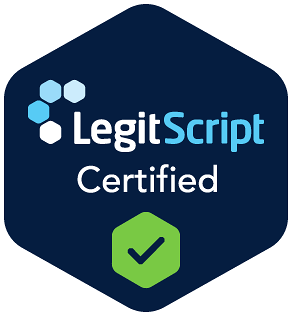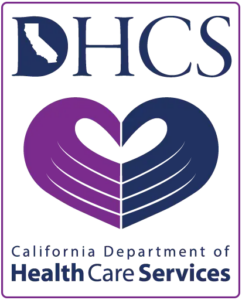Preparing for detox involves gathering certain items and understanding what facilities allow. Many people entering detox for the first time feel unsure about what to pack. Having a clear checklist helps reduce anxiety and ensures a smoother admission process.
Some items are required for admission, while others provide comfort during your stay. Each facility has specific guidelines, so checking requirements beforehand prevents delays at check-in. At Surf City Detox in Huntington Beach, California, our compassionate team helps guide you through the preparation process, ensuring you have everything needed for a safe and comfortable detox experience.
Essential Documents and Identification
Detox facilities require specific documents to verify identity and provide safe, accurate care. A government-issued photo ID—such as a driver’s license, passport, or state identification card—is mandatory for admission. Insurance cards help process coverage for treatment and medications.
Required Documents
- Government-issued photo ID: Driver’s license, passport, or state ID for identity verification
- Health insurance cards: Primary and prescription coverage cards
- Emergency contact information: Names, phone numbers, and relationships of people to contact
- Medical history documents: Recent test results, allergy lists, or previous treatment summaries
- Current medication list: All prescription and over-the-counter medications with dosages
An emergency contact list allows staff to communicate with family members if needed. Medical history documents help the clinical team understand your specific health needs and provide appropriate care.
Clothing Guidelines for Your Detox Stay
Packing clothing for a 7-10 day detox stay requires selecting comfortable, modest items that meet facility guidelines. Since laundry facilities are available, you only need about one week’s worth of clothing. All clothing must be appropriate for group settings and free of drug- or alcohol-related imagery.

Essential Clothing Items
| Item | Quantity | Notes
|
| T-shirts | 5-7 | No offensive graphics or substance references |
| Comfortable pants/shorts | 3-4 | Modest length, appropriate for group activities |
| Sweatshirts/hoodies | 2-3 | For layering and warmth |
| Undergarments | 7-10 | Enough for daily changes |
| Socks | 7-10 | Regular and athletic socks |
| Sleepwear | 2-3 sets | Modest pajamas or comfortable sleep clothes |
| Closed-toe shoes | 1-2 pairs | Comfortable, slip-on preferred |
| Shower shoes | 1 pair | For bathroom hygiene |
Since Surf City Detox is located in Huntington Beach, California, the weather is generally mild year-round. Light jackets work well for cooler evenings, while breathable fabrics are suitable for warmer days. Slip-on shoes provide convenience during your stay.
Personal Hygiene Items and Toiletries
Personal care items help maintain comfort and routine during detox, but all products must meet safety requirements. The most important restriction is that all toiletries must be alcohol-free to prevent misuse.
Alcohol-Free Products Only
Many common products contain alcohol and aren’t allowed in detox facilities. Regular mouthwash, hand sanitizer, and aerosol hair sprays typically contain alcohol. You’ll need to find alcohol-free alternatives for these items.
- Approved Personal Care Items:
- Toothbrush and toothpaste: Standard oral hygiene supplies
- Alcohol-free mouthwash: Check labels carefully for alcohol content
- Alcohol-free deodorant: Stick or roll-on types, not aerosols
- Shampoo and conditioner: Alcohol-free formulations only
- Body wash or soap: Gentle, alcohol-free options
- Hairbrush or comb: Basic grooming tools
- Feminine hygiene products: As needed for your stay
- Disposable razors: May be stored by staff for safety
Beauty supplies are generally limited to non-aerosol products. Basic makeup is usually acceptable, but nail polish and remover may be restricted due to chemical content.

Medications and Medical Records
Detox facilities follow strict medication policies to ensure everyone’s safety. All prescription medications must be in original pharmacy containers with clear, readable labels. Only current prescriptions are accepted—expired or unlabeled medications will be confiscated.
Medication Management During Detox
Staff members manage and dispense all medications during your stay. Some medications, particularly controlled substances or those with abuse potential, may not be permitted. The medical team reviews each medication for safety and potential interactions.
Medication Requirements
- Original containers: All prescriptions in pharmacy bottles with labels
- Current prescriptions only: No expired medications accepted
- Complete medication list: Include dosage, frequency, and prescribing doctor
- Over-the-counter medications: Must be disclosed and approved
- Supplements and vitamins: Often restricted, check facility policies
Creating a detailed medication list helps the medical team provide safe, effective care. Include all prescription drugs, over-the-counter medications, and supplements you regularly take.
What Not to Bring to Detox
Understanding prohibited items prevents problems during admission and helps maintain a safe environment for everyone. Most restrictions focus on safety, security, and preventing distractions from recovery.
Electronics and Personal Devices
Most detox facilities restrict electronic devices to minimize distractions and outside influences during early recovery. Cell phones are often held by staff or are completely prohibited during detox. Laptops, tablets, cameras, and recording devices are typically not allowed.
Prohibited Items:
- Substances: Alcohol, drugs, or drug paraphernalia of any kind
- Weapons: Sharp objects, knives, or anything that could cause harm
- Electronics: Cell phones, laptops, tablets, cameras, recording devices
- Aerosol products: Hair spray, cleaning products, or pressurized containers
- Alcohol-containing products: Mouthwash, hand sanitizer, perfume
- Inappropriate clothing: Items with drug/alcohol imagery or offensive content
- Large amounts of cash: Excessive money or valuable items
Some facilities allow small amounts of cash for vending machines or personal needs. Check with your specific facility about their cash policy and secure storage options.
Special Situations and Care Packages
Certain circumstances require additional preparation or special considerations when packing for detox.
People entering detox after surgery often need extra medical documentation and specialized items. Discharge summaries, wound care instructions, and post-operative guidelines help staff provide appropriate care. Loose-fitting clothing accommodates bandages or medical devices, while approved medical equipment may be necessary for recovery.
- Medical documentation: Discharge summaries and care instructions
- Loose-fitting clothing: Accommodates bandages or medical devices
- Approved medical devices: Braces, slings, or mobility aids
- Pain management coordination: Discuss needs with medical staff
Family members often want to send supportive items during your detox stay. All packages require staff approval before delivery to ensure safety and compliance with facility rules.
- Letters and cards from loved ones
- Approved books or magazines (no explicit content)
- Puzzle books or journals for quiet activities
- Small comfort items like stress balls or fidget toys
Food, beverages, and unapproved personal care items aren’t allowed in care packages. Check with the facility about their specific policies for receiving items from family and friends.
Confirming Items with Your Detox Center
Contacting the admissions team before packing prevents confusion and ensures you bring appropriate items. Each facility has specific guidelines, and policies can vary between locations.

Pre-Admission Checklist
- Contact admissions: Ask about specific items and get clear answers
- Review facility guidelines: Read provided packing lists carefully
- Document approvals: Keep notes about approved special items
- Verify restrictions: Double-check prohibited items to avoid problems
Most facilities provide official packing checklists that outline permitted and prohibited items. Reviewing these documents and asking questions helps ensure a smooth admission process.

FAQs About What to Bring to Drug and Alcohol Detox
Most detox facilities don’t allow personal cell phones during early recovery to minimize distractions. Staff typically store phones securely until discharge.
All toiletries must be alcohol-free, including mouthwash, deodorant, and hair products. Aerosol products are generally prohibited for safety reasons.
Pack 5-7 days’ worth of comfortable, modest clothing since laundry facilities are available. Focus on basics like t-shirts, comfortable pants, and adequate undergarments.
Prescription medications are allowed but must be in original pharmacy containers with clear labels. Medical staff will review and manage all medications during your stay.
Family members can send approved items like letters, books, and small comfort items. All packages require staff approval before delivery to clients.
Professional Detox Support in California
Preparing for detox represents an important step toward recovery and improved health. While having the right items can increase comfort during your stay, the primary focus remains on safely managing withdrawal symptoms and beginning the recovery process with an understanding of what happens after detox.
Surf City Detox in Huntington Beach provides medically supervised detox services with experienced healthcare professionals. Our team understands the challenges of detox and works to create a supportive environment where you can begin recovery with confidence. From helping you understand what to bring to answering questions about the admission process, our compassionate staff is available to guide you through each step of addiction treatment in California.
Ready to take the next step toward recovery? Contact Surf City Detox for more information about admission requirements and to begin your journey toward sobriety:
Dr. Eric Chaghouri is a 2007 graduate from the University of California, Los Angeles, where he earned his B. A. in Biology with Summa Cum Laude honors. While at UCLA, he helped the men’s varsity volleyball team earn a National Championship in 2006. He was named the UCLA Scholar-Athlete of the Year in 2007.
He earned his medical degree from the Keck School of Medicine in 2011. He completed his internship training in 2008 at Cedars-Sinai Medical Center and the remaining three years of residency in general adult psychiatry at the Los Angeles County and University of Southern California Medical Center. He served as the Chief Resident in psychiatric emergency services during his fourth year of residency. He also served as Resident Clinical Instructor and Volunteer Faculty in the Department of Psychiatry at the Keck School of Medicine.
After completing residency, Dr. Chaghouri accepted a fellowship position in forensic psychiatry at the prestigious USC Institute of Psychiatry and Law. His scholarly activities included publishing in Legal Digest and presenting research findings at the Keck School of Medicine annual conference.
Since completing his forensic psychiatry fellowship, he has established a successful and thriving practice in Southern California, focusing on treatment of co-occurring psychiatric and addictive disorders. He has developed a strong clinical team of practitioners who share similar goals and philosophies regarding psychiatric treatment, including providing cutting-edge interventional treatments for psychiatric conditions. He works in an array of capacities with attorneys, courts, and other parties in actual or potential litigation. He also has extensive experience consulting and providing opinions on psychiatric issues for major television networks. Dr. Chaghouri’s interests include addiction medicine, substance use disorders, forensic psychiatry, medical ethics, psychological autopsy, gender wellness, and evidence-based treatment of psychiatric conditions.



